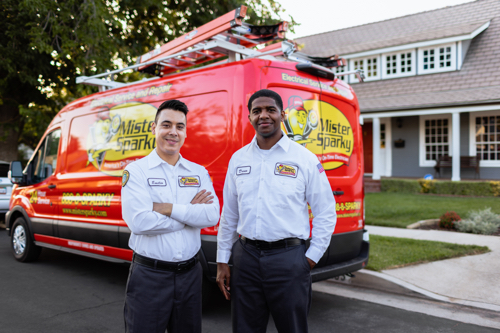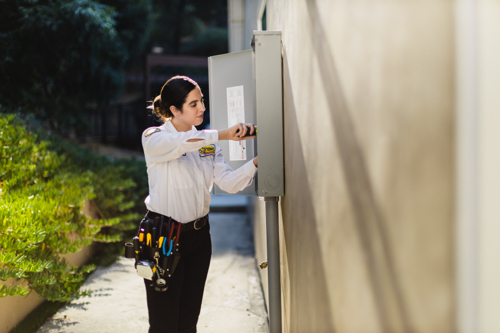Can Homeowners Install Their Own Standby Generator?
When the power goes out, a standby generator can be a real lifesaver. Suddenly, your fridge stays cold, your wifi keeps humming, and you can ride out the storm in comfort. But as a homeowner, can you tackle the installation yourself? Let’s dive into the pros, cons, and key considerations.
The Standby Generator Advantage
Standby generators are the big leagues when it comes to home backup power. Unlike those portable units you drag out for camping trips, these heavy-duty machines kick in automatically when the grid goes down.
They connect directly to your home’s electrical system and run on natural gas or propane, so you don’t have to worry about refueling.
For homeowners, a standby generator means peace of mind and uninterrupted functionality. It keeps essential appliances running, your internet up and running, and your home comfortable – no more groping around in the dark. Plus, it can even boost your home’s resale value, as many buyers actively seek out this feature.
The DIY Installation Process
On paper, installing a standby generator seems straightforward. But in reality, it involves a number of intricate steps that require precision and know-how. First, you’ll need to size the generator correctly to match your home’s power needs. Then comes site preparation, you’ll need to pour a concrete pad and position the unit close to your fuel supply and electrical panel.
Next up are the utility connections. Tying the generator into your home’s electrical system requires a transfer switch to safely switch between grid and generator power. The gas line hookup is another critical piece, ensuring a reliable fuel source without any leaks.
Navigating Local Codes and Permits
One major hurdle is making sure your generator installation complies with local regulations. Many municipalities have specific codes governing everything from the generator’s location to the type of fuel lines allowed. Skipping this step can lead to fines or, worse, an unusable system.
Consulting with your local building department or a professional familiar with the area’s rules is essential. They can help you secure the proper permits and avoid any nasty surprises down the line.
Assessing Your DIY Skills
So, can average homeowners handle all this? It depends on your existing skills and comfort level. If you’ve got experience with electrical work, plumbing, and reading technical manuals, you may be up for the challenge. But for many, the complexity and safety risks involved make it better to call in the pros.
Attempting a DIY install without the right experience can lead to costly mistakes, from improper connections to safety hazards. And let’s be honest – most of us have enough on our plates without adding a complex home improvement project.
Calling in the Experts
For many homeowners, hiring a licensed electrician and plumber is the way to go. They can navigate the technical aspects and local codes with ease, ensuring your generator is installed safely and up to code. You’ll also get the added benefit of workmanship warranties, giving you peace of mind.
While professional installation does come with a price tag, it can save you money in the long run by avoiding mistakes. Plus, the investment in a properly functioning standby generator pays off in spades when the power goes out.
Crunching the Numbers
Speaking of costs, there’s more to consider than just the generator itself. You’ll need to factor in materials for the installation, any necessary permits, and potentially new tools. And if you do hire pros, their labor will add to the bottom line.
But weigh that against the benefits, a reliable standby generator can last for years, keeping your home running smoothly through outages. It’s a long-term investment that adds real value to your property.
Preparing for the Project
If you do decide to tackle this as a DIY endeavor, preparation is key. Start by researching different generator models and calculating your power needs. Then, dive into those local codes and get all the necessary permits lined up.
Reach out to neighbors who have installed generators before, they can offer invaluable insights and tips from their own experiences. And at every step, prioritize safety over speed. Rushing through this project can have serious consequences.
The Bottom Line
Ultimately, whether homeowners can install a standby generator themselves comes down to their skills, resources, and comfort level with the risks involved. For some, it’s a rewarding DIY challenge. For others, it’s better to call in the experts and enjoy the peace of mind.
But no matter which path you choose, a standby generator is a game-changer when the power goes out. It keeps your home running, your family comfortable, and your property value strong. With the right preparation and approach, you can weather any storm with confidence.
